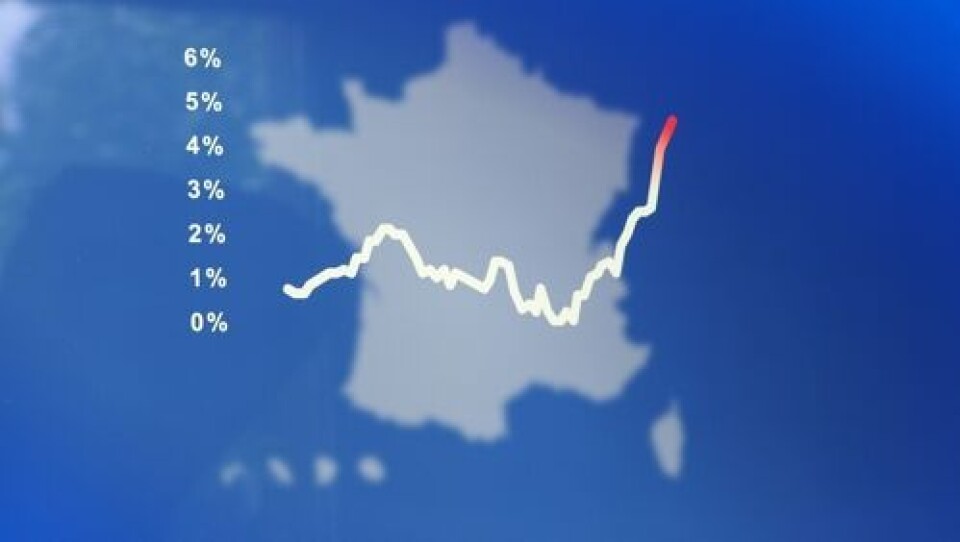-
Pistes closed, confinement orders: Alpine resorts deal with avalanche risk
Increased snowfall this weekend may cause further closures as busy school holiday season continues
-
Former French Interior Minister announces 2027 presidential candidacy
Bruno Retailleau recently asked prefectures to be tough on immigration
-
Ryanair axes Dublin-Rodez route but London connection retained
“We are disappointed but had no say in decision” say airport authorities
French economy grew by 2.6% in 2022, annual inflation at 6%
Estimates put growth for 2023 at 0.7% but projections for 2024 are stronger with the IMF predicting that France will be among the G7 countries with higher growth

Economic growth in France reached 2.6% in 2022, new figures show. This is a stable increase sustained by a post-Covid boom to economic activity but hampered by a drop in household activity during the final quarter of the year.
Growth in the final quarter of 2022 was only 0.1%, with the slowdown attributed to inflation levels and the increased cost of typical household products and energy.
The annual figure was slightly higher than expected with Insee, France’s state statistics agency, predicting a rise of 2.5% and the government 2.7%.
Sharp rise in inflation in 2022
Data on the rate of inflation in France has also been released, showing an increase of 6% between January 2022 and January 2023.
The main contributing factors are the increased price of energy and household goods, which rose by 13.2% and 16.3% respectively.
This is the highest yearly inflation rate in France since 1984, when inflation increased by 6.7%.
Finance Minister Bruno Le Maire, however, says he expects inflation levels to peak in early 2023 and then decrease from the middle of the year.
Read more: Inflation in France: which foods have risen most, will rises continue?
Read more: More details revealed on plan for 50 low-cost shopping items in France
No change in 2023 predictions
Early 2023 projections from the International Monetary Fund (IMF) regarding global economic growth are slightly stronger than October last year but there is no change to the expected levels for France.
Global GDP could rise by 2.9% this year according to January 2023 predictions, slightly higher than the estimate from October 2022, which forecasted growth of 2.7%.
The French economy, however, is only expected to increase by 0.7%
The UK is the only major economy for which GDP estimates have fallen despite October 2022’s prediction showing a rise in UK GDP levels. The January report predicts a decrease of 0.6%.
So-called ‘emerging and developing’ economies have the strongest overall growth predicted, with an average rise of 4% forecast compared to ‘advanced economies’ which on average are only predicted to rise 1.2%.
A contrast in estimations
Both the Banque de France and the French government have also given estimates of growth for France this year.
The Banque de France is the least optimistic, projecting a growth of 0.3% whereas the government predicts an increase of 1%.
These projections of stabilisation suggest that fears of a 2023 ‘hard recession’ have diminished but certain factors, such as energy prices and difficulties in recruiting, may affect France throughout the year according to the French financial newspaper La Tribune.
IMF predictions for 2024 are more positive for France with growth predicted at 1.6% - higher than the assessments for Germany, Italy and the US, amongst others.
Related articles
New low-cost supermarket in France aims to sell at up to 10% cheaper
























